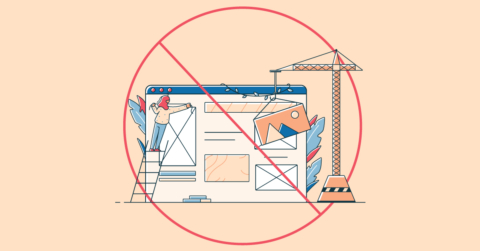
How To Improve Your SEO: 12 Tactics To Help
05/04/23
digital design
Quality search engine optimization (SEO) is an essential aspect of digital marketing for any business or organization. It increases a website’s visibility and drives more traffic over time. This positively drives many other “sub goals” that most organizations have.
Are you looking to improve your SEO? Here are 12 actionable tips on how to use SEO effectively to get seen by your target audience.
12 Tactics To Improve Your SEO
1) Conduct Keyword Research
Keyword research is the foundation of any effective SEO strategy. Using tools like Google Keyword Planner or SEMrush can help identify relevant keywords that your target audience is searching for. If you want to improve your SEO with your keyword research? Be sure to incorporate these keywords into your website’s content, headings, meta descriptions, and URL’s (more on this later).
2) Create High-Quality Content
Once you’ve conducted your keyword research, it’s time to create content. High-quality content is crucial to attracting and retaining visitors to your website. This is true regardless of your niche, and relevant for both private businesses and nonprofits. The key? Focus on creating informative, engaging, and unique content that your target audience will find valuable.
3) Optimize Your Website for Mobile
More and more people are using mobile devices for browsing the internet. With this in mind, it’s important to ensure that your website is optimized for mobile. While this can mean a lot of things, here are the most important factors to consider: responsive design, images that are optimized, and a website that loads fast. Focus on this and it will pay dividends over time.
4) Use Descriptive URL’s
It’s directly harming your SEO if you are using URL’s that are either confusing or non-descriptive. The solution? Descriptive URL’s that actually mean something to your audience. Ensure that you are using URL’s that include your target keywords, as well as avoiding generic URL’s that provide no value (or information) to the user.
5) Optimize Your Title Tags
Title tags are usually the first thing users see in the search engine results page (SERP). The importance of them (and making sure they are optimized) can’t be overstated. With that in mind, be sure that you are using targeted keywords in your title tags, as well as words that ensure that your title tag is relevant to the content on the page.
6) Build Backlinks
Many high quality backlinks are an important factor in improving your SEO. There are many ways to approach this tactic, and a variety of different strategies you can implement. Still, it helps to have a few best practices in mind while building more backlinks to your site. Check out these tactics to get started.
7) Use Alt Tags
Alt tags are descriptions of your images that help search engines understand the context of the image. This makes alt tags essential if you want to improve your SEO. Unfortunately, they are also one of the more “forgotten” aspects of SEO. The solution? Be sure to use targeted keywords in your alt tags to improve your website’s visibility.
8) Use Header Tags
Good SEO requires high quality content. Not only the topics you educate your audience about, but the way you structure your content as well. If you are creating and sharing blog posts, header tags are one of the best ways to do this. They not only make your content easier to read, but show search engines that your content is relevant. This is great if you want to improve your SEO.
9) Optimize Your Meta Descriptions
Meta descriptions provide a summary of your website’s content in the search engine results page. This is important to your SEO results, because this is the first thing many people will see. Like many tactics listed here, the solution is to use targeted keywords. You should also ensure that your description is engaging and relevant to the content on the page.
10) Improve Your Website’s Load Time
Want to know one of the destructive factors to effective SEO? A slow website. A slow-loading website can negatively impact your search engine rankings, and can make the user experience incredibly frustrating. Use tools like Google PageSpeed Insights to identify and fix issues that slow down your website’s load time.
11) Use Social Media
Overall, social media is a great way to drive traffic to your website. Over time, given enough visitors to your different pages, this inevitably improves your search engine rankings. Of course, what exactly you do on various platforms will depend on your company’s approach to social media marketing. Reflect on how to use it effectively (and consistently) for the best results.
12) Track Your Progress
None of these tactics to improve your SEO mean much if you don’t measure your results. To ensure you do, you need to implement the right tools – and do it consistently. A tool like Google Analytics will help you track the right KPI’s like website traffic, bounce rate and search engine rankings. This will give you a good read on the areas you need to improve – essential if you want to improve your SEO.
…
Are you an enterprise, nonprofit or small business looking for help on your website? Give us a shout! We provide a free consultation. Email us at info@lughstudio.com or call us at (718) 855-1919!









